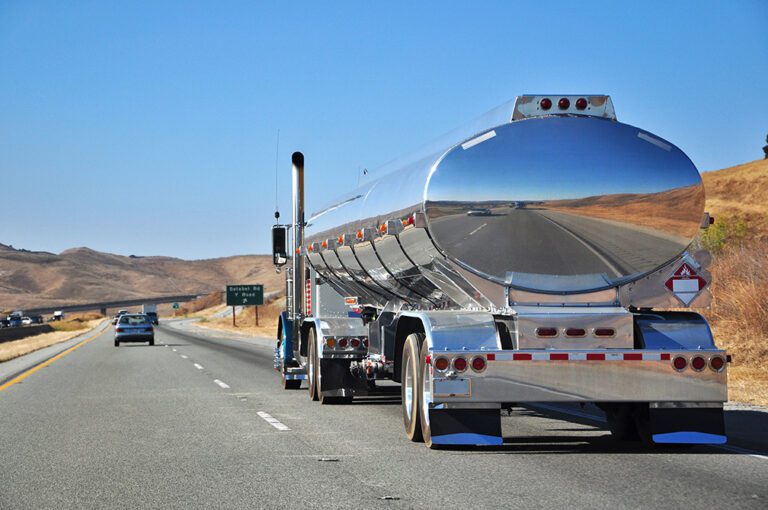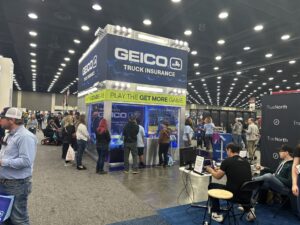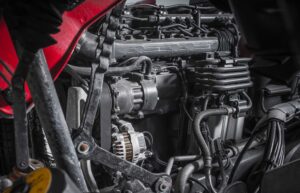If you own a truck — or plan to buy one — the decision of what to do with it should be near the top of your list. Details such as what kind of freight you’ll haul, in which areas you want to run and whether you’ll lease your truck to a carrier or go out on your own can make a huge difference in the success of your trucking business.
While it’s true that many drivers stay with the trailer type they originally trained with, others want to experience some of the variety that trucking offers. Some are curious about what it would be like to pull a trailer that’s different from the one currently behind their cab. Trucking offers a huge variety of options.
A change in trailer types often means the non-driving tasks are different, the hours and runs are different, and even driver pay and the frequency of home time can be different. And for the owner-operator, the compensation can be very different.
Dry van (or “box”) trailers are the most common and offer many opportunities for a truck owner. Owners can find a variety of work, from local and regional routes to coast-to-coast runs. Local work usually offers daily time at home, but the pay isn’t usually as good. Some drivers prefer shorter runs because they stay within a preferred geographic area, often offering more time at home than long runs. Others like the longer runs because they can rack up the miles and spend less time loading and unloading. Long runs often result in less home time, but owners who can lock down regular runs and return hauls can often have regular, predictable home time.
Dry van trucking often includes dock time and even some driver labor, including building or breaking pallets, shrink wrapping, counting and even hand loading or unloading. It all depends on the customer, and drivers quickly form opinions, good or bad, about each location.
Refrigerated trailers are, for the most part, dry van trailers with temperature-control equipment attached. Most have aluminum floors rather than wood; these aluminum floors have tracks that allow water from condensation to run off without soaking cargo. Since refrigerated trailers can also haul dry van freight, some drivers prefer them.
Hauling refrigerated freight requires diligence on the driver’s part to make sure the temperature remains in the range specified by the customer. Some loads require that the trailer be pre-chilled, and some customers demand the trailer be washed out before loading.
Wait time at some warehouse locations can be long, and drivers are often asked to handle at least some of the freight. Some drivers enjoy the physical activity and the extra pay that sometimes comes with it, while others hate waiting and performing labor they think should be the responsibility of the facility.
Hauling flatbed offers a change some drivers like. Since flatbed freight is usually loaded by forklift or crane, driver labor usually isn’t involved in the process. Some drivers prefer hauling equipment or machinery and some like pulling step decks, drop decks or even RGN (reticulated gooseneck), or “lowboy,” trailers.
Securing and tarping the load involves labor, and drivers often prefer freight that doesn’t need tarping. Trailers with side kits and tarp roofs (Conestoga wagons) and retractable tarps can make life easier — but they can also create work. While flatbed drivers avoid most dock delays, they sometimes need to wait for a forklift or crane operator.
Flatbed generally pays better than dry van but can be more susceptible to seasonal conditions and building slumps. There’s an investment in the equipment needed to secure and protect freight, too. Depending on the freight hauled, chains, straps, binders, winches, tarps and more may be needed.
Some truck owners turn to tank trailers for a different sort of job. Tankers come in both wet (liquid) and dry (dry bulk) configurations. Loading and unloading is often a matter of opening a hatch or hooking up a hose and pulling a lever. Some loads require a pump to unload, and some products are heated.
Many tanker loads require some special handling for hazardous materials or food-grade products. Pneumatic tankers that haul dry bulk products can be noisy and dusty to unload. Instead of unloading at a dock, tanker drivers often must find connections to hook up the hoses.
While dry van, refrigerated and flatbed trailers can haul a variety of freight, tankers are often restricted to certain types of cargo. A trailer used for gasoline, for example, can’t pick up a load of orange juice next. Food-grade tankers are generally prohibited from hauling non-food products and, in some cases, are dedicated to a specific product for the life of the trailer. Chemical trailers require special care to avoid loading a substance that could have a violent reaction to residue left in the trailer from the previous load.
Some tankers are thoroughly washed out after every load, some when the product is changed and some are only washed out when maintenance is needed. Drivers need to know where to get trailers washed, who pays for the wash and if mileage to and from wash locations is covered.
Driving with a tank trailer can be challenging, too. They tend to have a high center of gravity and can be dangerous in turns and curves. Liquids can slosh from side to side or surge from front to back. The compensation can be excellent, however, and some drivers quickly take to the type of work.
Other types of trucking involve hauling cars, boats or livestock; each has its own pros and cons. There are many specialty trailers in trucking, and it seems someone is always adapting a trailer to do something new.
If you’re looking for the right fit for you and your truck, talk to drivers of different trailer types, and do some research. You just might find the trucking job you’ve been dreaming about.
Cliff Abbott is an experienced commercial vehicle driver and owner-operator who still holds a CDL in his home state of Alabama. In nearly 40 years in trucking, he’s been an instructor and trainer and has managed safety and recruiting operations for several carriers. Having never lost his love of the road, Cliff has written a book and hundreds of songs and has been writing for The Trucker for more than a decade.








